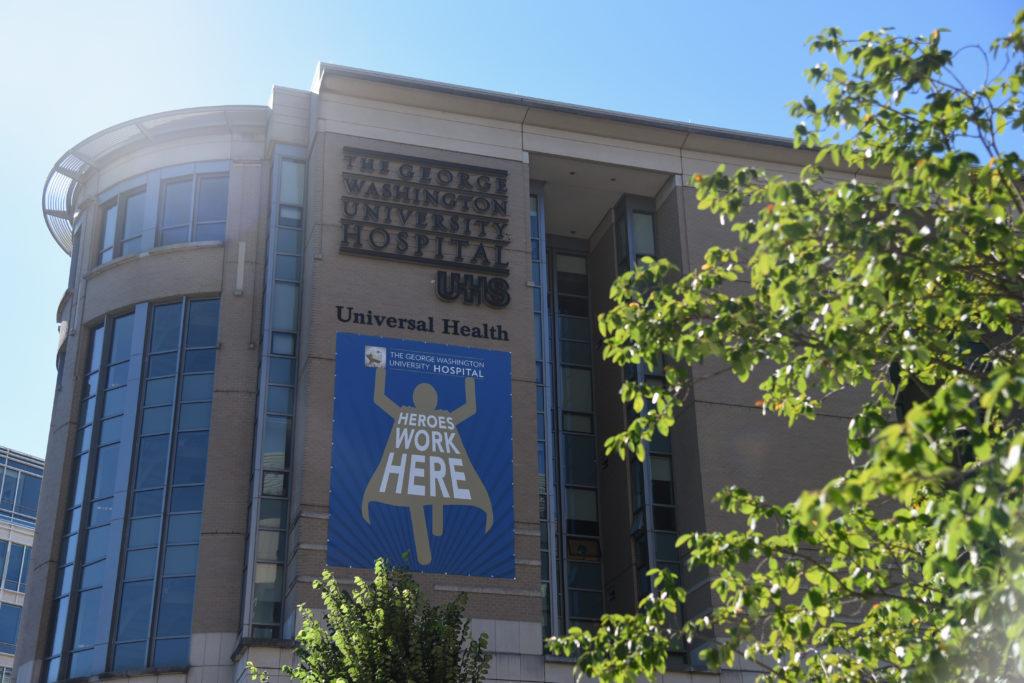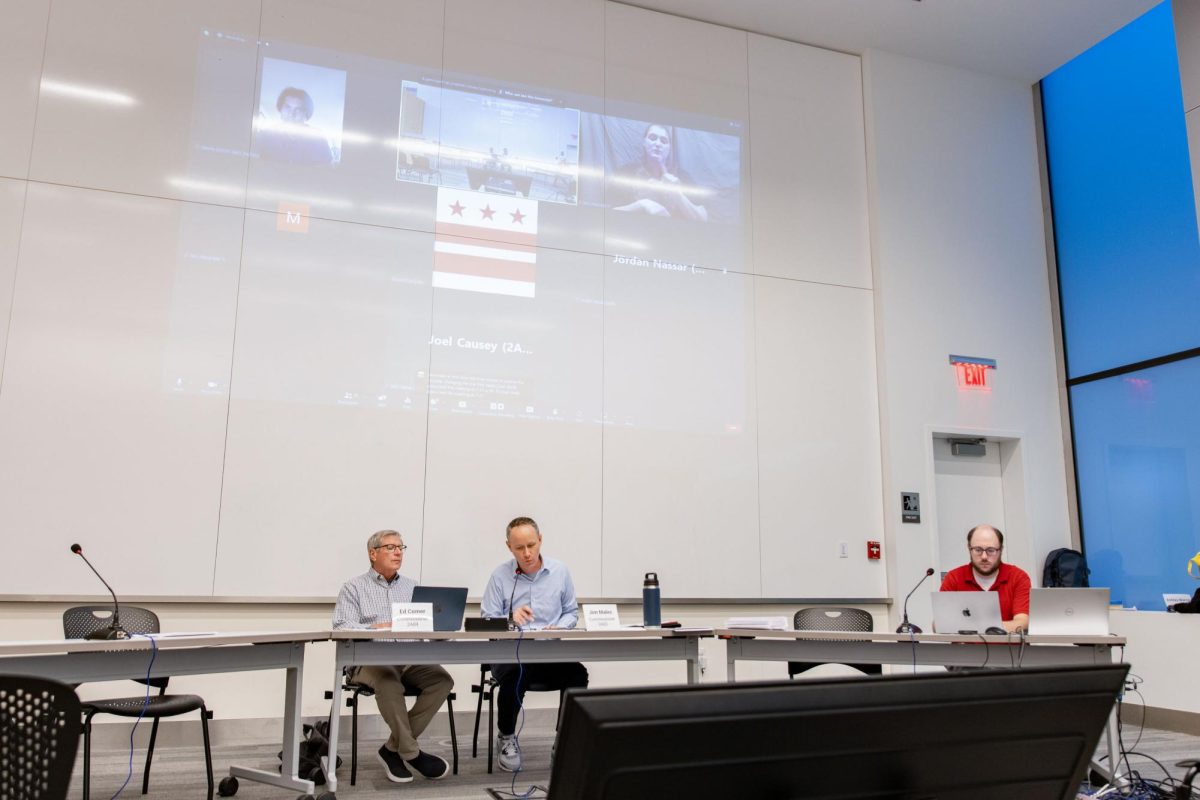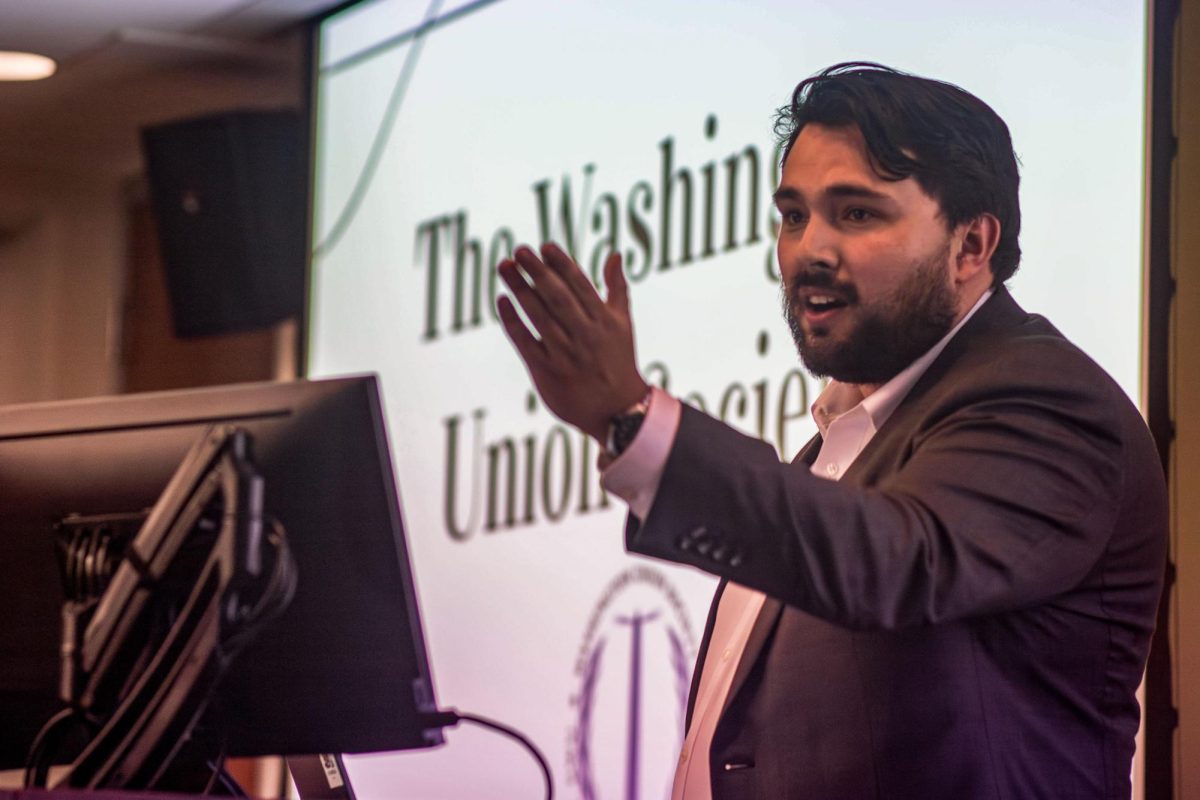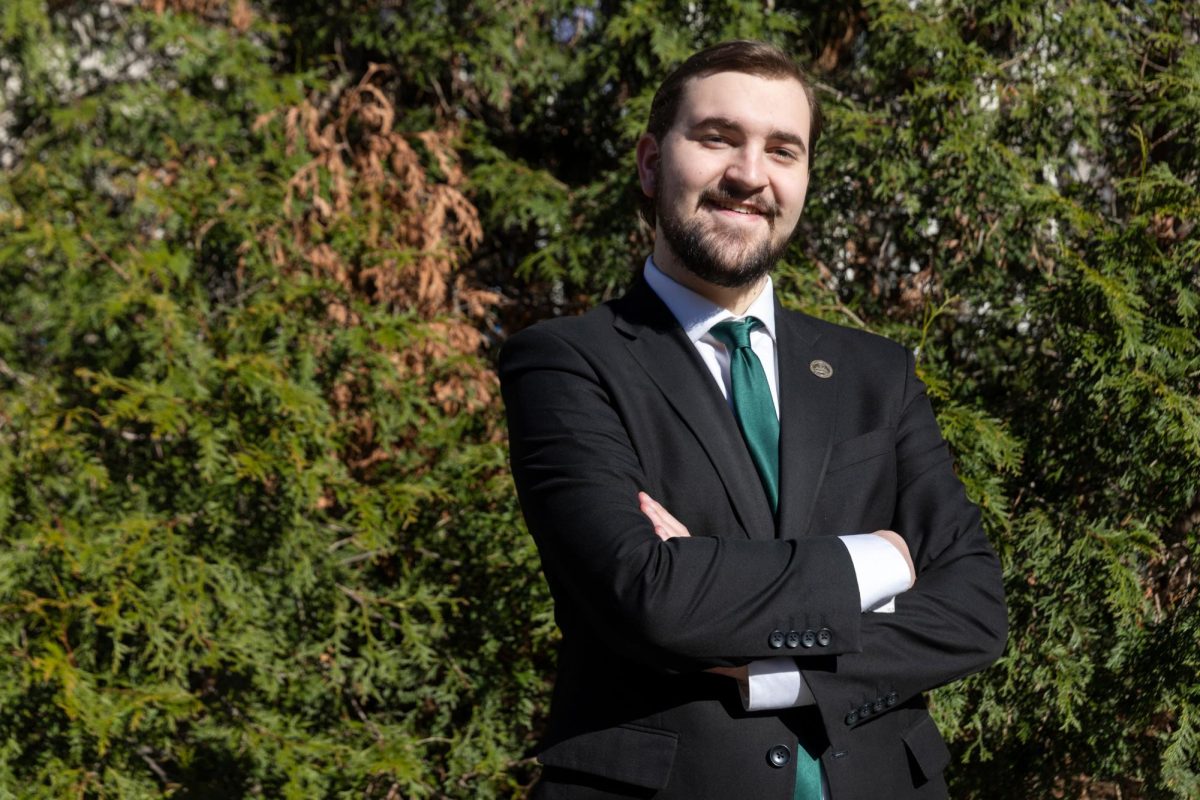The District of Columbia Nurses Association filed five unfair labor practice complaints against GW Hospital Tuesday, according to DCNA officials.
DCNA staff attorney Kenneth Page said he filed five unfair labor practice complaints on behalf of GW Hospital nurses last Thursday through Tuesday after 750 nurses at the hospital filed a union election petition March 15. Page said the complaints accuse GW Hospital officials of suspending a nurse following the unionization effort, surveilling staff spaces and discouraging union participation in private meetings with nurses.
“There’s been a general kind of environment created where, my view is, the hospital management’s trying to scare folks out of participation and some of the nurses are really, really feeling that,” Page said.
A GW Hospital spokesperson did not return a request for comment.
DCNA said in a release Tuesday that GW Hospital officials suspended registered nurse Angelo Estrellas because of his involvement in the union, which the DCNA called “retaliation” and a violation of the National Labor Relations Act. A petition calling on GW Hospital to reinstate Estrellas has garnered more than 1,850 signatures.
Page said officials have not yet put a timeframe on Estrellas’ potential return.
Page said another charge relates to hospital officials allegedly installing cameras in break rooms and meeting rooms after they formed plans to unionize and another accuses officials allegedly taking an employee into a “captive audience” meeting to discuss negative aspects of unions.
Page said he sent the charges to the NLRB’s regional office in Baltimore, where officials will review and investigate the charges. He said after speaking with witnesses, officials will likely decide how to move forward in two to four weeks, and the case will either reach a settlement or a hearing before an administrative law judge.
Page said he is “committed” to the idea of creating an environment where DCNA and nurses can openly negotiate without fear of retribution.
“I filed charges that I think are material and true and my expectation is to press this case vigorously with the board,” Page said. “I can’t promise what the board will do and how the evidence will ultimately come in. But I’m certainly confident about it.”
The release states GW Hospital has also attempted to identify union organizers and “thwart” their efforts, alleging that officials have removed union literature, indicated a “refusal” to engage in good-faith negotiations and participated in “closed-door” meetings. Edward Smith, DCNA’s executive director, said nurses filed union paperwork because of poor staffing and retention last month, alleging nurses were frequently stretched thin because they had to provide care for more patients than they were able.
“The NLRA protects the right of employees to engage in organizing activities for the purpose of forming a union and prohibits managers from spying on or retaliating against employees suspected of engaging in union activity,” the release states.
A GW Hospital spokesperson said in a statement last month the hospital recognizes the nurses have a federal right to unionize but that a union-free hospital will provide “flexibility” and “individual empowerment” for the nurses while maintaining a “direct” relationship between nurses and management.
“Such a significant decision should be an informed choice based on the facts about unionization,” the spokesperson said in an email last month. “We welcome this opportunity to share information and engage in substantive discussions with our nurses on this issue.”
Last month, Smith said officials met nurses’ concerns over the hospital’s lack of staffing and training with “very little” interaction prior to the unionization effort.
He said understaffing at the hospital has forced nurses to take more shifts, where they oversee more patients than they should, harming their ability to provide patient care. He said nurses are also struggling with retention, expressing a need for additional ancillary staff.
Smith also said Universal Health Partners, which owns GW Hospital after the University sold its final 20 percent stake in the facility last year, is a “well-known” anti-union employer with “knee-jerk” opposition to the nurses’ union. Multiple unionization efforts at other UHS-owned facilities have failed, like those at medical centers in Pennsylvania, California and Nevada.
“Despite continued intimidation tactics and threats of retaliation from UHS and GWUH administration, the nurses remain committed to their efforts, noting that this type of behavior further demonstrates their need for union representation,” the Tuesday release states.










